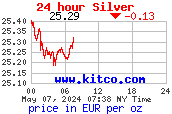Les victimes ne sont pas encore enterrées qu'on parle déjà des conséquences financières et économique ...
Le Nikkei a perdu même pas 2% aujourd'hui. Les réassureurs sont les grands perdants et entrainent les autres indices boursiers dans leur chute.
Je me rapelle d'une "prophétie" qui dit que les catastrophes naturelles provoqueront une débacle financière par le biais de la banqueroute des réassureurs. C'est vrai que ça en prend le chemin.
Encore plus vicieux: les assureurs japonais, en mal de liquidité pourraient vendre leurs bon européens: "Will The Japanese Earthquake Be The Straw That Breaks Europe's Back?" sur ZeroHedge:
Two months ago many were scratching their heads when Japan announced it was buying Eurozone bonds. After all - why would Europe want to have a marginal buyer (or as the case may be seller) of its debt be the country that is known by all to be the most indebted entity in the world? Of course, it became promptly clear that it was not the Japanese government doing the buying, but mostly its financial companies, with an emphasis on its insurance and reinsurance companies. Fast forward to today when Japanese insurance companies are getting pummeled in local trading on concerns the payoffs to the decimated Japanese infrastructure will be unprecedented. So what will happen? Why a scramble for liquidity of course, just like we saw back in September 2008, when cash stricken companies sold all their liquid assets first, resulting in a toxic loop of self-fulfilling prophecy selling which almost tobbled the $25 trillion shadow banking system. And what will said Japanese insurance companies sell first? Why the very same Eurozone bonds they acquired with so much pomp and circumstance, by the minions of the insolvent Eurozone, back in January of course. Furthermore, now that Japan will have no choice but to launch a mini round of Quantitative Easing and flood the market with JGBs, there will be a dramatic spike in supply for sovereign paper, which of course means yields across the board will rise.
Which begs the question: if an earthquake flips its wings in Japan, does the Eurozone go bankrupt, especially in the month when its most insolvent countries face billions in debt rollover requirements, tens of billions in maturity funding needs, even more in deficit funding requirements... and no cash?
.
Inscription à :
Publier les commentaires (Atom)



![[Most Recent Quotes from www.kitco.com]](http://www.kitconet.com/charts/metals/gold/t24_au_en_usoz_2.gif)
![[Most Recent Quotes from www.kitco.com]](http://www.kitconet.com/charts/metals/gold/t24_au_en_euoz_2.gif)



Aucun commentaire:
Enregistrer un commentaire
Le blog est fermé. Allez sur la nouvelle rubrique des moutons écrasés (la suite)
Remarque : Seul un membre de ce blog est autorisé à enregistrer un commentaire.